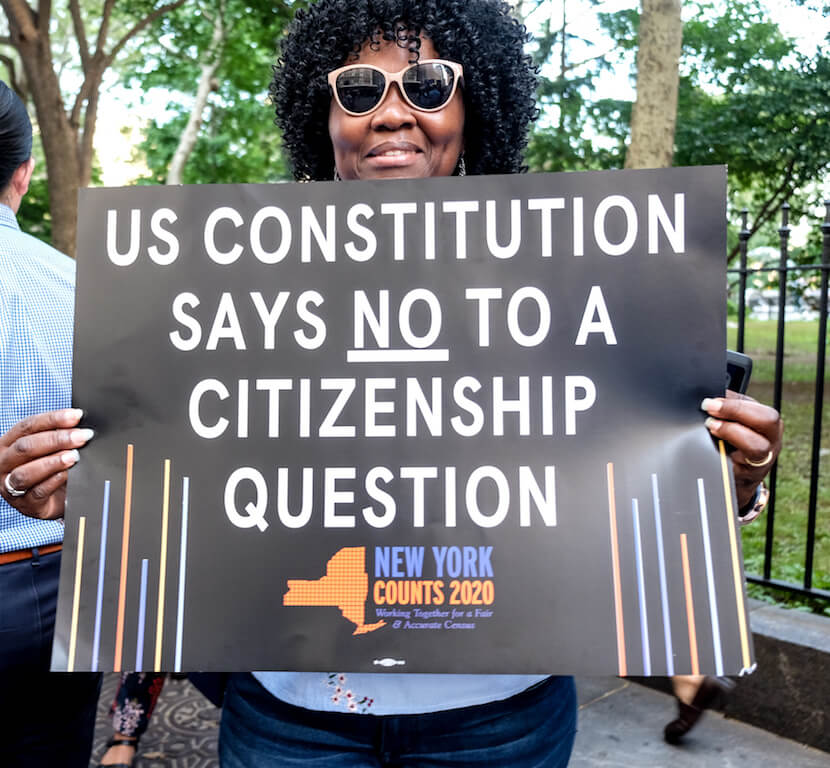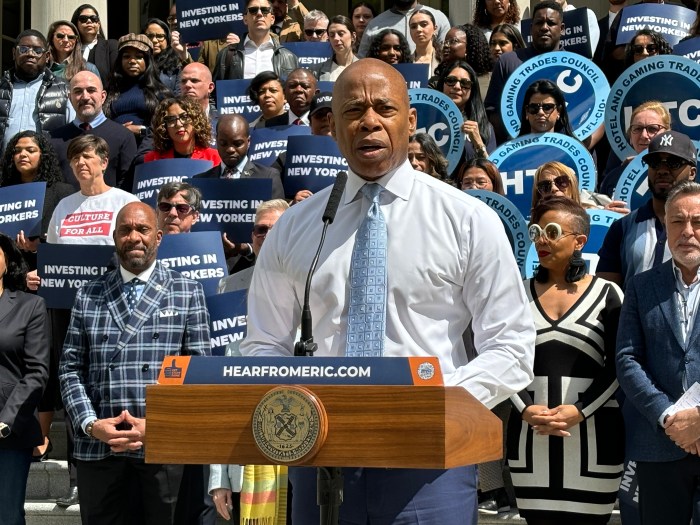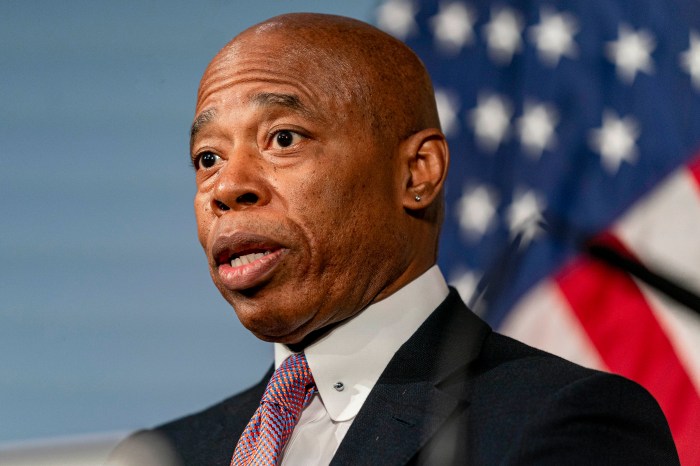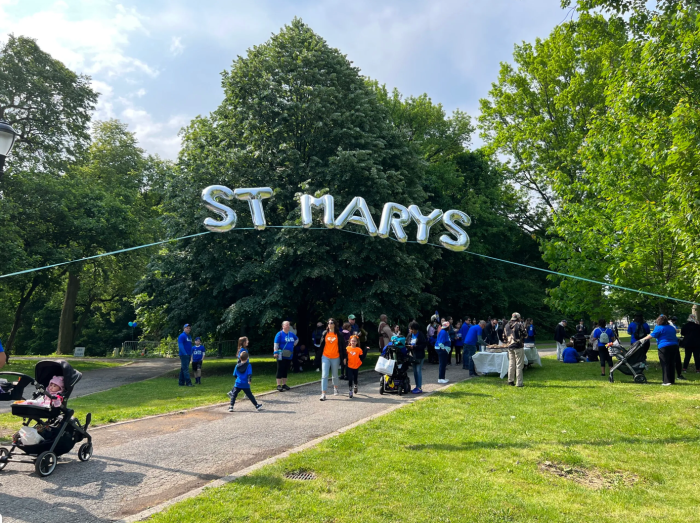BY ALEJANDRA O’CONNELL-DOMENECH | Outside of City Hall Park, a buzzing crowd recently celebrated the U.S. Supreme Court’s decision to block the citizenship question from the 2020 Census.
At the June 27 rally, sign-waving members and allies of the coalition group New York Counts 2020, listened to local politicians, including New York Attorney General Letitia James, nonprofit leaders like Stephen Choi, executive director of the New York Immigration Coalition, and city leaders, like Julie Menin, the Census director for New York City, speak to how the decision was a victory for democracy and the rule of law.
“Today the Supreme Court upheld what each and every single one of us here knows, that every single person in this country, in this state, in this city, deserves to be counted, deserves to be represented and not silenced,” said Murad Awadeh, vice president of advocacy of the New York Immigration Coalition. An eruption of cheers followed his remarks.
Critics of the citizenship question say that it will deter noncitizens from filling out the form and thus skew Census results in favor of Republicans. According to Menin, what is at stake for New York by adding the question is $700 million worth of federal funding for state programs, like public education, public housing and Medicaid. Menin also stressed that an undercount in New York could mean the loss of two congressional seats.
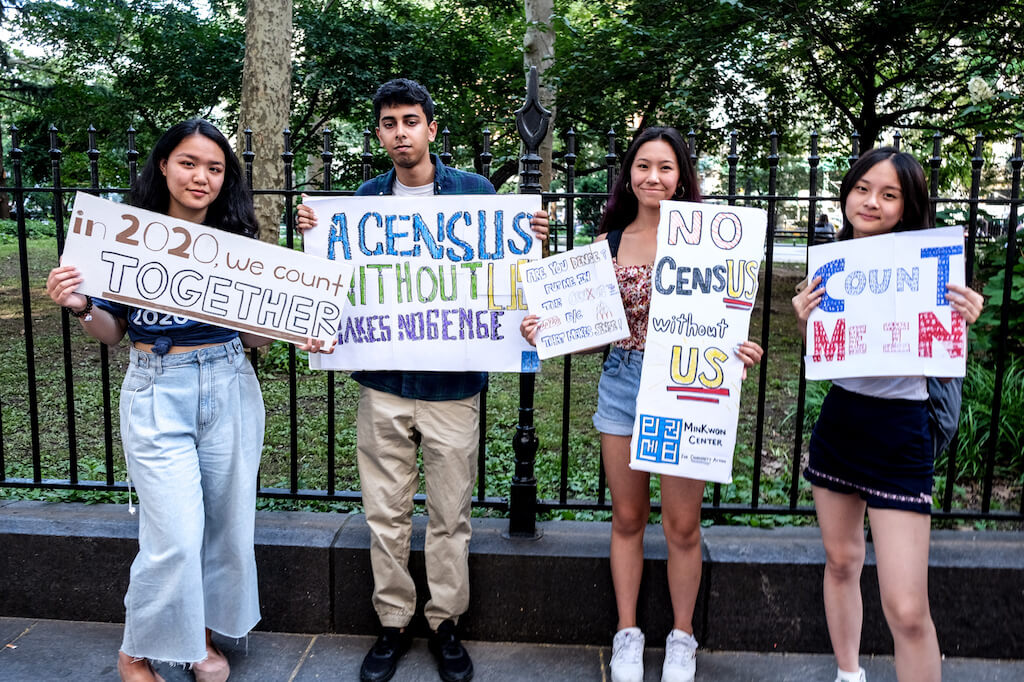
In March 2018, Commerce Secretary Wilbur Ross approved plans to add the question, “Is this person a citizen of the United States?” to the 2020 Census against the recommendation of the Census Bureau. The question has not been asked on a U.S. Census since 1950. In April of last year, New York State led a group of 18 states, 10 cities and four counties and the U.S Conference of Mayors in a lawsuit against the Commerce Department and the Census Bureau to try to remove the citizenship question from the 2020 Census. Later that month, several other states filed similar lawsuits.
The Supreme Court’s June 27 decision stated that the Trump administration’s Department of Commerce could not add the citizenship question to the Census form because the reason it later gave for doing so was a lie, according to Vox. The ruling, however, allowed for the Trump administration to present a more legitimate reason for including the question.
Trump, though, was under a time crunch since the the Census Bureau only had until June 30 to finalize the Census form. On July 2, Ross announced that the Commerce Department would print the Census form without the citizenship question. But the next day, Trump tweeted otherwise and considered using an executive order arguing a constitutional need to add the question, according to the Washington Post.
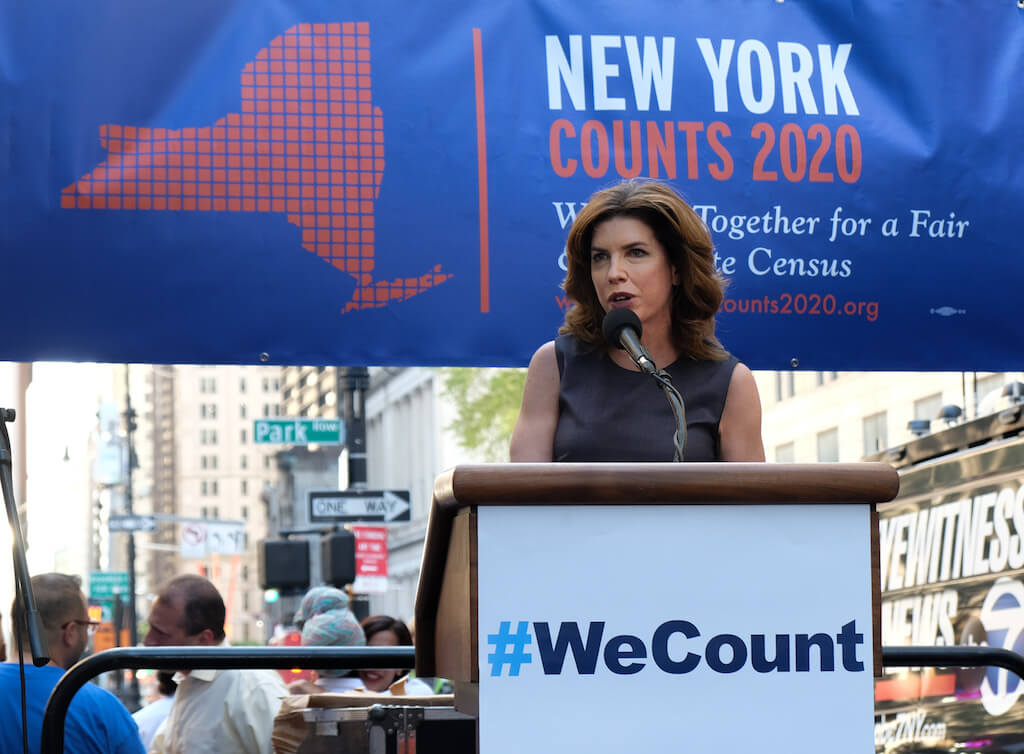
Although speakers at the rally expressed confidence that the citizenship question would remain off of the Census form, they worried about another hurdle: response rate.
According to Menin, New York State had a 61.9 percent self-response rate to the Census questionnaire while the national response rate was 74 percent.
According to Menin, part of the reason New York’s response rate was so low was because a lack of community education about the importance of the census. This time around, that will not be the case, according to Menin. Her office plans on going to community board meetings, neighborhood meetings and houses of worship and “every pocket of the city” to speak about what is at stake with an undercount.
“Every neighborhood can and must do better,” said Menin. ” It is the single most important step one can take to ensure that their respected community gets the funding it deserves.”



